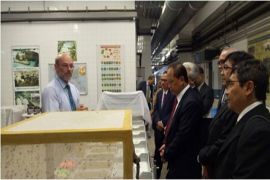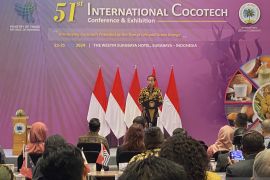Totti Tjiptosumirat, the agencys spokesperson, stated here on Monday that since Indonesia had been successful in producing sorghum varieties, including rice, soybean, mungbean, tropical wheat, and cotton, the International Atomic Energy Association (IAEA) had designated the country as a training center in the Asian region.
According to Totti, several academics and researchers from countries, including Myanmar, Burkina Faso, Nepal, and Sri Lanka, were participating in the training on mutation breeding technology in BATAN.
The spokesperson is optimistic that the number of participants will increase in future, moreover after BATAN had received the Outstanding Achievement Award on Plant Mutation Breeding from the IAEA in September 2014.
Totti remarked that on May 23-27, 2016, BATAN and IAEA were holding a session on improving the utilization of nuclear technology through a training on the Applications of In-vitro Techniques for Bioenergy Crop Mutation Breeding in Jakarta.
The training is called IAEA/RAS Regional Training Course on the Applications of ln-vitro Techniques in Mutation Breeding of Bioenergy Crops/RA55O7O.
Rajbir Sangwan, a plant breeding bioenergy specialist, will impart knowledge on technologies to improve the productivity and quality of bioenergy crops on marginal lands to participants from Bangladesh, Cambodia, China, India, Indonesia, South Korea, Laos, Malaysia, Mongolia, Myanmar, Pakistan, Philippines, Sri Lanka, and Vietnam.
Earlier, the lAEA had appointed Indonesia as the lead country coordinator in the Asian region due to the availability of vast marginal lands and as the country had a renewable energy development program to realize its energy security.(*)
Editor: Heru Purwanto
Copyright © ANTARA 2016











